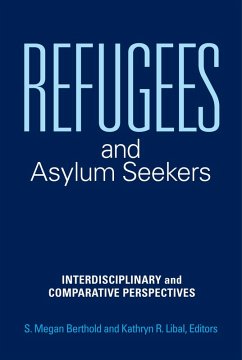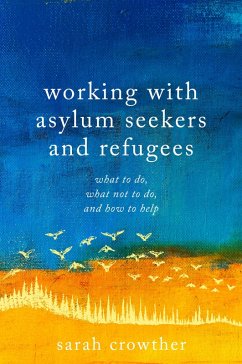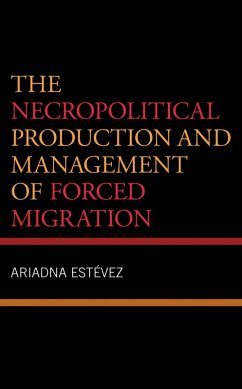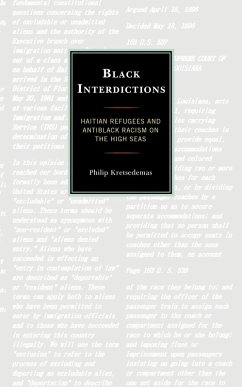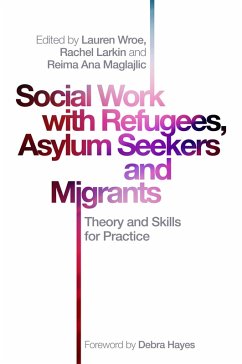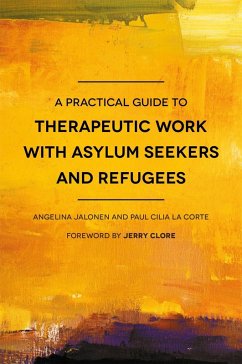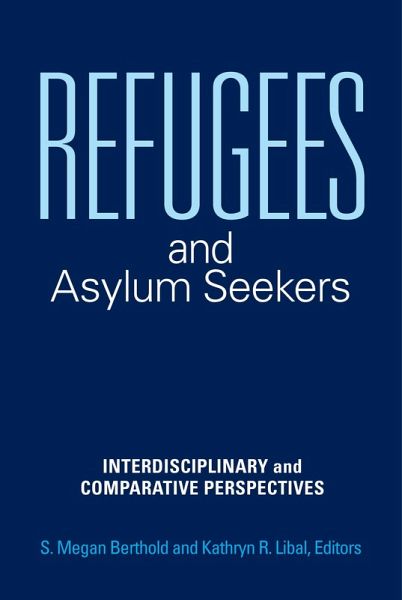
Refugees and Asylum Seekers (eBook, ePUB)
Interdisciplinary and Comparative Perspectives
Redaktion: Berthold, S. Megan; Libal, Kathryn R.
Versandkostenfrei!
Sofort per Download lieferbar
52,95 €
inkl. MwSt.
Weitere Ausgaben:

PAYBACK Punkte
26 °P sammeln!
This volume engages human rights, domestic immigration law, refugee policy in the United States, Canada, and Europe, and scholarship to examine forced migration, refugee resettlement, asylum seeker experiences, policies and programs for refugee well-being in North America and Europe. Given the recent "re-politicization" of forced migration and refugees in Europe and the U.S., this edited collection presents an in-depth, multi-dimensional analysis of the history of policies and laws related to the status of refugees and asylum seekers in the U.S., Canada, and Europe and the challenges and prosp...
This volume engages human rights, domestic immigration law, refugee policy in the United States, Canada, and Europe, and scholarship to examine forced migration, refugee resettlement, asylum seeker experiences, policies and programs for refugee well-being in North America and Europe. Given the recent "re-politicization" of forced migration and refugees in Europe and the U.S., this edited collection presents an in-depth, multi-dimensional analysis of the history of policies and laws related to the status of refugees and asylum seekers in the U.S., Canada, and Europe and the challenges and prospects of refugee and asylum seeker assistance and integration in the 21st century. The book provides rich insights on institutional perspectives critical to understanding the politics and practices of refugee resettlement and the asylum process in the U.S., Canada, and Europe, including international human rights and humanitarian law as well as domestic laws and policies related to forced migrants. Issues addressed include social welfare supports for resettled refugees; culturally responsive health and mental health approaches to working with refugees and asylum seekers; systemic failures in the asylum processing systems; and rights-based approaches to working with forced migrant children. The book also examines policy developments and strategies to advance the well-being and social inclusion of refugees in the U.S. and Europe.




